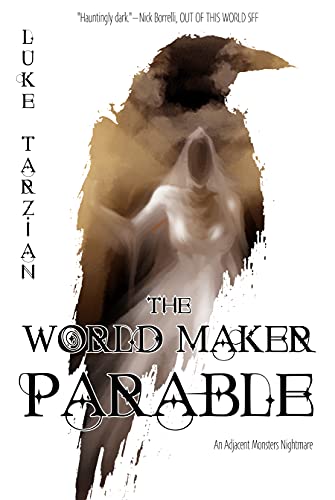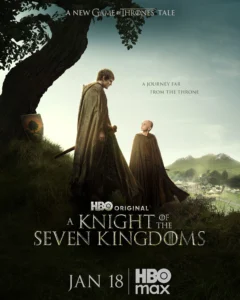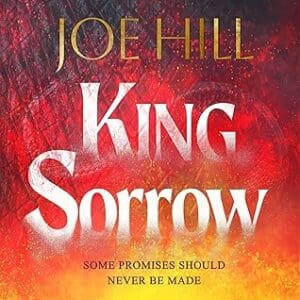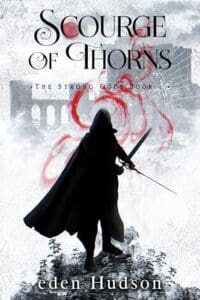
Synopsis
Guilt will always call you back…
Rhona is a faithful servant of the country Jémoon and a woman in love. Everything changes when her beloved sets the ravenous Vulture goddess loose upon the land. Forced to execute the woman she loves for committing treason, Rhona discovers a profound correlation between morality and truth. A connection that might save her people or annihilate them all.
You are a lie…
Varésh Lúm-talé is many things, most of all a genocidal liar. A falsity searching for the Phoenix goddess whom he believes can help him rectify his atrocities. Such an undertaking is an arduous one for a man with missing memories and a conscience set on rending him from inside out. A man whose journey leads to Hang-Dead Forest and a meeting with a Vulture goddess who is not entirely as she seems.
Review
I want to preface this post by saying that I have not read Vultures. Though, after TWMP, I find that it is much higher on my TBR.
Also, Justin and I read this book together. If you’d like to see his thoughts on it, you can find his review here.
I don’t know Luke extremely well. I consider him a friend, but we haven’t known each other long enough to have those real deep heart-to-hearts that come with a budding friendship. After reading TWMP, though, I think I understand him a little better. Unfortunately, I can’t talk about everything I’d like in this review because I don’t want to spoil things, but I can say, without a doubt, that this is one of the most emotionally poignant novellas I’ve ever read. To say that Luke bared a piece of soul when writing this would not do it or him justice.
Grief is a tricky subject to write. We’ve all heard of (and probably gone through) the five stages of grief. I think, in a way, the characters experience them firsthand here. The journeys that Rhona and Varésh go through in a relatively short amount of time challenge not only them as people, but us as readers as well. With every page turn, we are left asking what we’re seeing and, more importantly, what we’re feeling.
The central narrative being weaved revolves entirely around truth and how, when we are grieving, the lies we tell ourselves about who we are and what we believe can consume us if we are not careful. Rhona and Varésh are two people who have fooled themselves into lives they cannot live in. With pain comes a certain responsibility to yourself and to the people around you who are hurting or whom you’ve hurt. That’s where Rhona and Varésh were always doomed. Selfish self-preservation by living in denial is the true catalyst for the story’s events.
Where Luke really succeeds is his storytelling. I have to admit, there were some places where I was thoroughly and utterly confused. Though there are only two “main” characters, there are certain instances where we are given POVs that don’t entirely blend in with the rest of the story. Instead of being a hindrance, though, this is what sets TWMP above other recent stories I’ve read. The confusion we feel as readers is meant to be, in my opinion, a reflection of the confusion the characters feel. They do not exist in a world that makes sense to them, so the world around them changes. I don’t want to venture too far into spoiler territory, so I’ll stop there.
It was truly an honor to read Luke’s work. Every sentence was embedded with pieces of himself; there wasn’t a moment when it felt anything less than genuine. If this book is about finding truth, I believe that Luke showed us his through The World Maker Parable. It was wonderful delving inside his mind, even for a brief moment. I am so thankful that it found its way to my shelf and I can’t wait to leap headlong into Vultures and The World Breaker Requiem. For more about Luke, you can find him at https://luketarzian.com/.







Leave a Reply